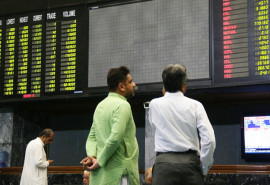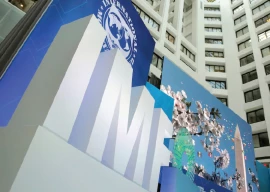
The liquid food packaging companies operating in Pakistan have expressed displeasure with the present government’s tax policies and lack of streamlining of food laws.
Ecolean Pakistan, a Sweden-based packaging company, said it had to withdraw planned investment in the country as it had become increasingly difficult for the enterprise to continue its operations in Pakistan.
“We want a level playing field otherwise we will not be able to continue operations in Pakistan in view of the disparities created by government policies with regard to import duties,” stated a letter sent to the Competition Commission of Pakistan and National Tariff Commission by the company’s management.
The letter detailed that widening disparities forced it to withdraw its investment in pipeline, which was aimed at expanding the local manufacturing operations in Lahore, and as a result several jobs were lost.
The company invested €55 million in 2018-19 to build a manufacturing facility in Pakistan and prior to that, it resorted to import packaging material in shape of finished goods from Sweden and paid 42% import duty.
The investment decision was made after top executives of the company met Prime Minister Imran Khan in 2018 who assured them of protection of investment along with a promise of a level playing field.
“At the very least, we expect the government to offer us the same opportunities that are given to other market players,” Ecolean Managing Director for South Asia and Middle East Peter Hauggaard told The Express Tribune. “We import exclusive, environment-friendly packaging material from Sweden, which cannot be used anywhere in Pakistan other than our manufacturing facility but still we pay exorbitant , which is making the company uncompetitive in this market.”
The official added that the company currently paid 16% duty (statutory rate) besides a 7% additional customs duty on raw materials which take the total levy to 23%.
The company imports its prime raw material ie polymers of ethylene, which is not produced in Pakistan and pays additional 7% duty on it, he said.
Hauggaard added that the company’s competitors, who made paper/wood based carton packaging, were being charged 15% import duty on raw material which was 8% lower than what Ecolean paid.
A top official from the National Tariff Commission said that the issue stemmed from the exclusive nature of the raw material, which might be the reason why the government was unable to provide a proper tariff structure.
“We are aware of this issue and are trying our best to solve it,” the official said. “All market players should be given equal opportunities to thrive,” he added.
The other key player in this category is also demanding some benefits in shape of reduction in different duties on imported raw materials.
“There is a lot of juice left in the liquid food packaging sector and to reap fruits and uplift this sector at par with the global players, the government should reduce duty on raw material,” said TetraPak Pakistan Marketing Director Hussain Raza Khan.
He pointed out that in the past two years, the company witnessed some adjustments in tariffs but still there was a dire need to further adjust these duties downward.
“Currently, the dairy industry’s capacity utilisation is around 38% with minimum pasteurisation law looming in Punjab by 2022,” he said. “A huge market and potential is waiting for this industry, however, the results might not be achieved if taxation and food laws are not streamlined.”
Abdul Basit, a corporate retail consultant said that normally when a new company enters the market, it faces tough competition from rivals.
He was of the view that bad business practices should be eliminated by the concerned government authorities to raise ease of doing business in Pakistan.
Published in The Express Tribune, January 3rd, 2021.
Like Business on Facebook, follow @TribuneBiz on Twitter to stay informed and join in the conversation.



1672385156-0/Andrew-Tate-(1)1672385156-0-165x106.webp)














COMMENTS
Comments are moderated and generally will be posted if they are on-topic and not abusive.
For more information, please see our Comments FAQ